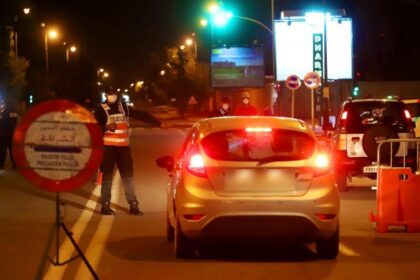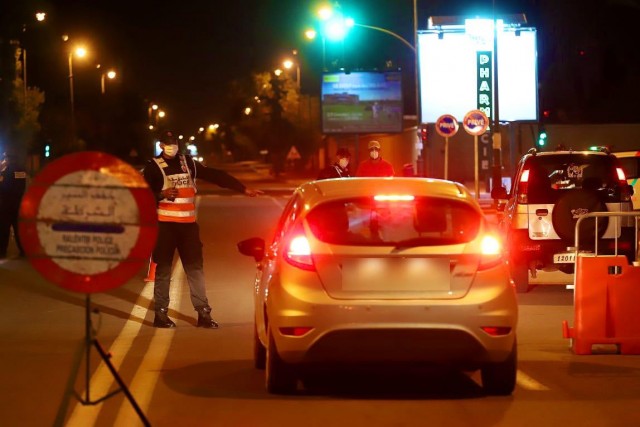 As Morocco has recorded a surge in coronavirus cases in several prefectures and provinces, in recent days, it has been decided to ban from Sunday midnight travel to and from eight major cities.
As Morocco has recorded a surge in coronavirus cases in several prefectures and provinces, in recent days, it has been decided to ban from Sunday midnight travel to and from eight major cities.
These are Tangier, Tetouan, Fez, Meknes, Casablanca, Berrechid, Settat and Marrakech, said Sunday a joint statement by the ministries of the Interior and Health.
The statement explains that the decision is made due to the increase in the number of COVID-19 cases in the concerned prefectures and regions and residents’ failure to respect the preventive measures, such as social distancing, the use of facemasks, and proper sanitization.
The lack of vigilance has actually led to an increase in COVID-19 cases in the concerned prefectures and regions, revealing a “worrying” epidemiological situation in the concerned regions, the statement says.
On Saturday, Morocco recorded 811 new COVID-19 cases, the highest tally since the start of the outbreak. Cases rose by 633 on Sunday, bringing the total number to 20,278.
Fatalities have reached 313, with the health ministry confirming eight new coronavirus-related deaths on Sunday.
Morocco’s government has warned that it will not hesitate to re-impose lockdown measures on any region in the case of major COVID-19 outbreaks.
On Saturday, Morocco’s Minister of Health Khalid Ait Taleb also warned that Morocco will reconsider its strategy to ease lockdown if the lack of respect for preventive measures continues. With cases continuing to rise, re-imposing a total nationwide lockdown remains an option in Morocco.
The travel ban decision announced Sunday excludes people requiring urgent medical treatment and public and private sector workers who have an authorization from their employers. The excluded groups should however have an exceptional movement permit signed and stamped by local authorities.
The suspension of travel does not include the movement of essential goods to ensure the continuous supply of Moroccan markets and meet consumers’ demands.



